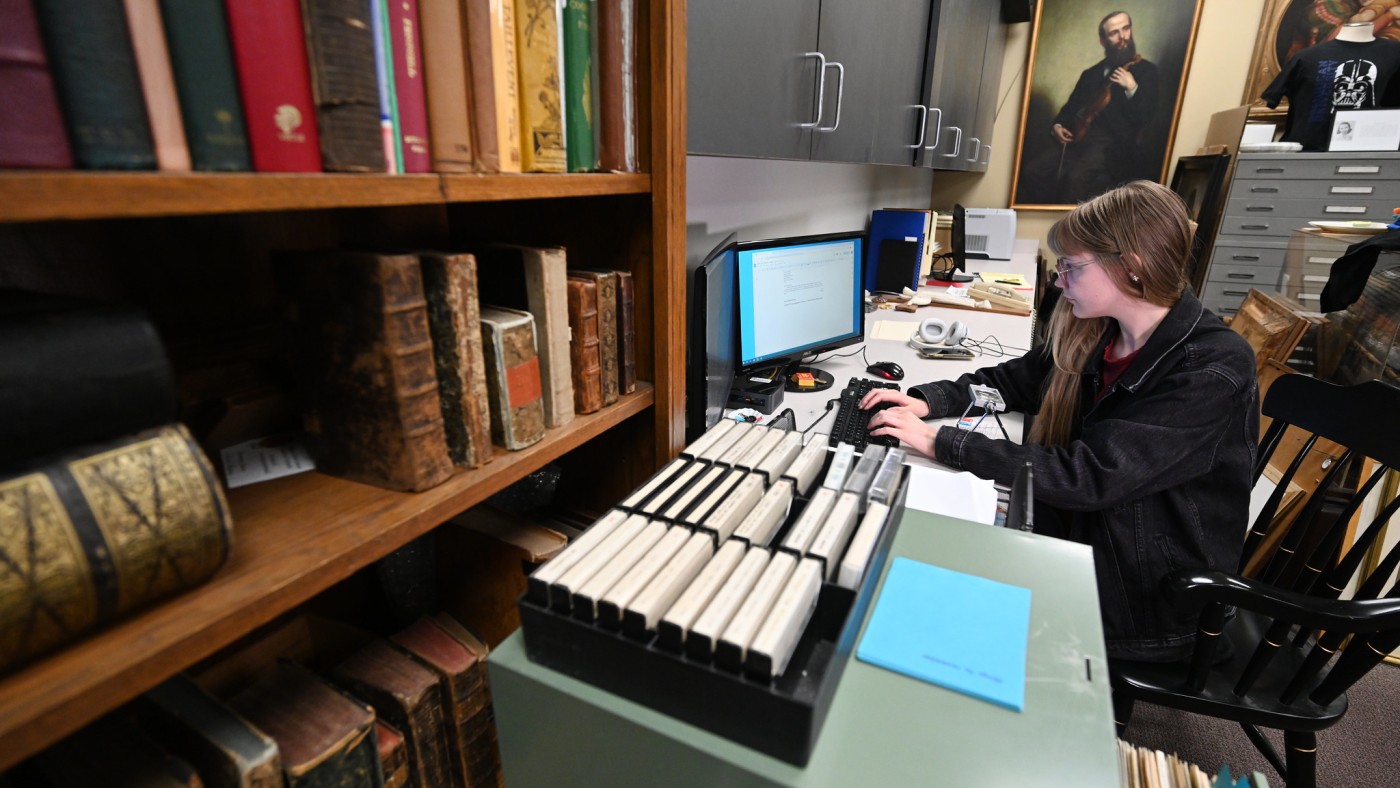School of Information Studies Receives Mellon Foundation Grant to Help Communities Preserve and Share Their Histories

For immediate release
Contact: Dr. Cecilia Salvatore, csalvatore@dom.edu
River Forest, IL—A grant made possible by the prestigious Andrew W. Mellon Foundation will allow students from Dominican University’s School of Information Studies to use and build upon their archival skills as they help diverse communities and organizations document, preserve and share their rich histories.
Over a period of three years, the $750,000 grant from the Mellon Foundation’s Public Knowledge program will provide several Master of Library and Information Science (MLIS) students with paid internships to help create local community archives using culturally responsive archival practices. The students will help select, appraise, arrange, describe, preserve, digitize and exhibit materials, records and other archival pieces that tell a community or organization’s story, history, culture and heritage. Students may help to collect and record oral histories as well.
Funding from the grant will also cover the cost of tools and equipment necessary to carry out the project and support a community archives “mini lab” for the students, community partners and communities with archiving, preservation and digitizing needs.
Leading the initiative are Dr. Cecilia Salvatore, coordinator of Dominican’s archives and cultural heritage certificate program, and Dr. Anthony Dunbar, associate professor in the School of Information Studies.
Several potential partners interested in building a historical archive have been identified, including a suburban municipality, an ethnic community cultural center, and a community organizing coalition, Salvatore said. One goal is to make these records and stories searchable for the public.
“The whole purpose is to help groups and communities preserve and tell their stories and share their heritage,” she said.
“The opportunity to bring the practice of archiving and the expression of cultural heritage—particularly with communities often disenfranchised from heritage-preserving resources—is profoundly inspirational,” Dunbar added.
Many communities or organizations lack the resources and formal training to document their histories, Salvatore explained, and many stories from the past remain untold.
While Dominican students apply what they learn in the classroom in hands-on, experiential ways, they will also share standard archival practices that the partnering communities or organizations can use moving forward, Salvatore said. At the same time, the students will gain new insights as well.
“We have our archival standards, but standards can be revisited and revised,” Salvatore said. “What aspects of the standards conflict with a community’s rules and norms? How can we improve our standards? We don’t want to just go in and teach others. We also want to get their feedback and input on improving how we do things because there’s always room for improvement.”
In addition to compensating students for their work, the grant will compensate the university partners who will be working with students and providing the historical backdrop for the records and archives, Salvatore said.
Dominican University is one of eight institutions of higher learning across the United States to receive a Public Knowledge program grant from the Mellon Foundation for local archival work. Each college or university is involved in the Faculty Organizing for Community Archives Support (FOCAS) Internship and Resource Development Project, which represents faculty who are training Master of Library and Information Science (MLIS) students in responding to community archival needs through their respective institutions.
Mellon’s Public Knowledge program supports the creation and preservation of cultural and scholarly records that document “society’s complex, intertwined humanity,” according to the program.
“The program’s goal is to increase equitable access to deep knowledge that helps to build an informed, heterogeneous, and civically engaged society,” the foundation said. “We aspire to cultivate networks and maintainable infrastructure, expand digital inclusion, and ensure that more authentic, reflective, and nuanced stories are revealed, preserved, and told.”
About Dominican University
Founded in 1901, Dominican University is a comprehensive, coeducational Catholic institution offering an associate of arts in liberal arts and sciences as well as bachelor’s and master’s degrees through the Rosary College of Arts and Sciences, the Borra College of Health Sciences, the Brennan School of Business and the College of Applied Social Sciences. The university also offers doctoral degrees in information studies and applied social justice. U.S. News & World Report ranks Dominican University #11 out of all Midwest regional master’s level universities, #1 in the Midwest for Best Value and #1 in Illinois for innovation and ensuring the social mobility of its graduates. Dominican University has campuses in River Forest and Chicago.
About the Andrew W. Mellon Foundation
The Andrew W. Mellon Foundation is the nation’s largest supporter of the arts and humanities. Since 1969, the Foundation has been guided by its core belief that the humanities and arts are essential to human understanding. The Foundation believes that the arts and humanities are where we express our complex humanity, and that everyone deserves the beauty, transcendence, and freedom that can be found there. Through our grants, we seek to build just communities enriched by meaning and empowered by critical thinking, where ideas and imagination can thrive. Learn more at mellon.org.